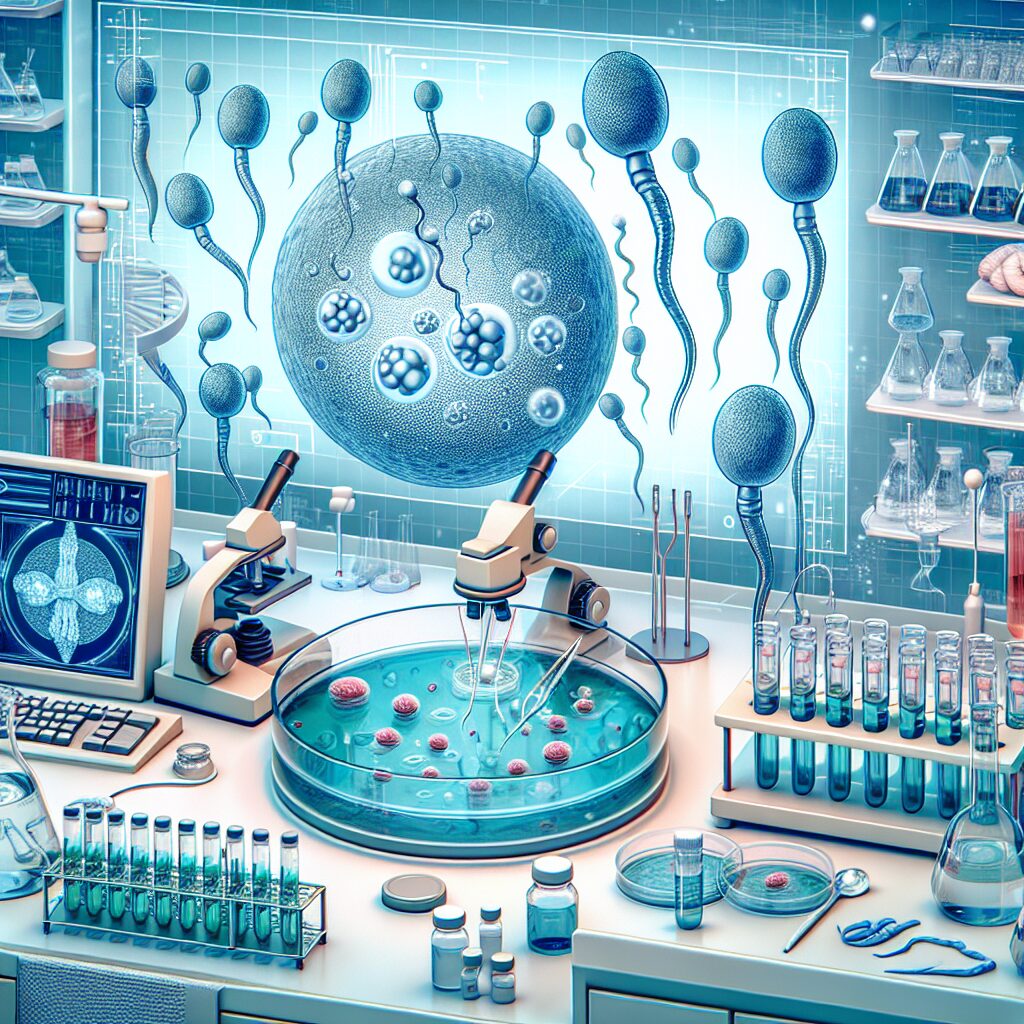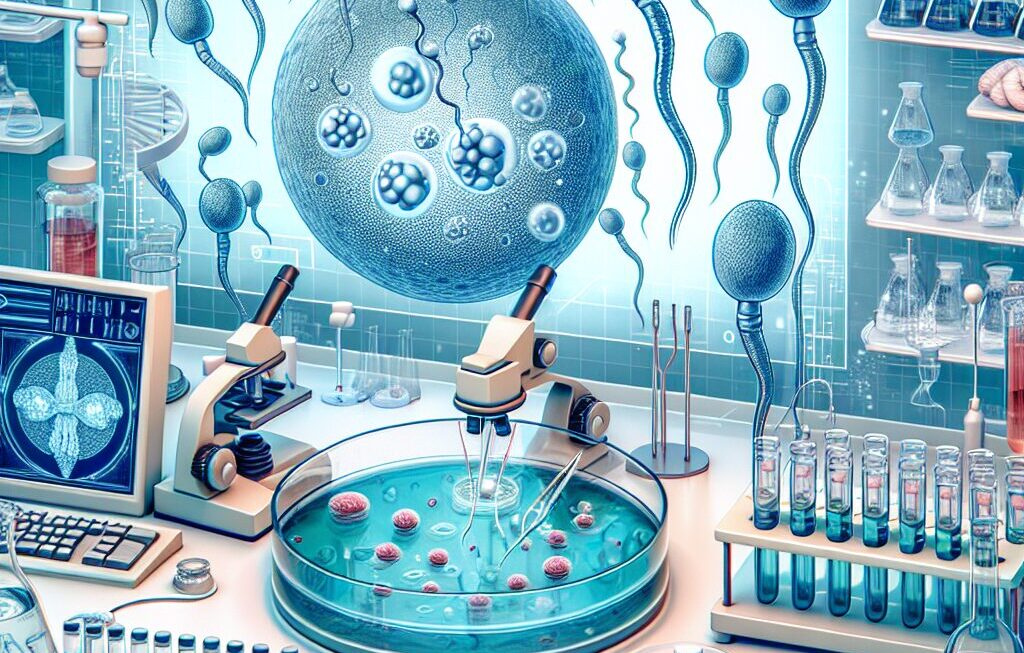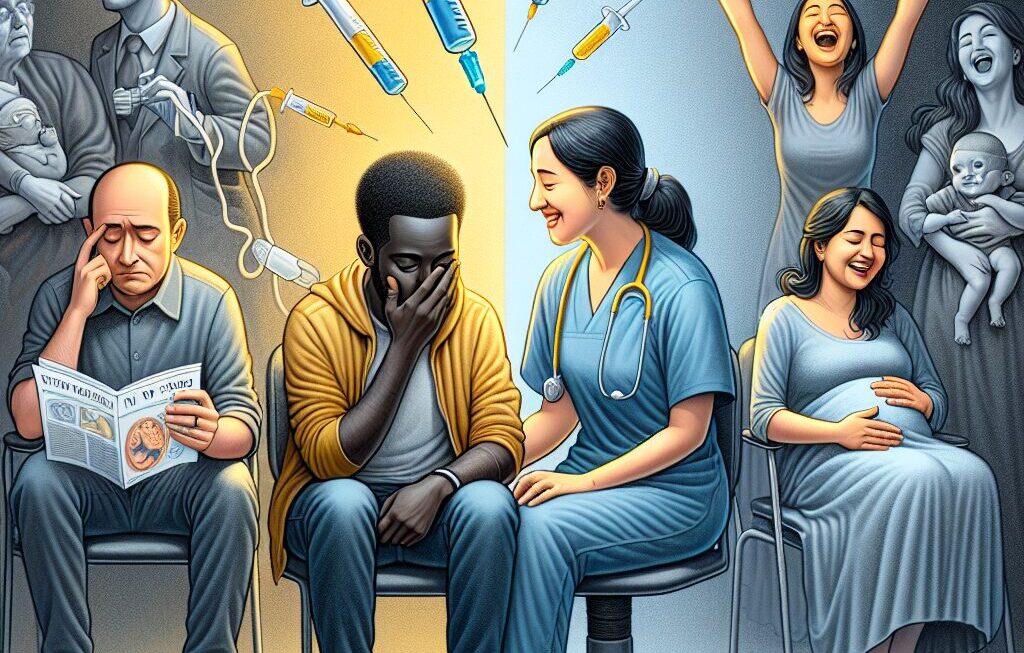In recent years, IVF (In Vitro Fertilization) has transformed the way families grow, offering hope to millions of couples facing fertility challenges. This revolutionary medical technique is not just about science; it’s about creating life, fulfilling dreams, and navigating a journey filled with emotional highs and lows.

What is IVF?
IVF is a complex series of procedures used to help with fertility or prevent genetic problems and assist with the conception of a child. The process involves extracting eggs from a woman’s ovaries, fertilizing them with sperm in a laboratory, and then implanting the resulting embryo(s) into the uterus.
While many people associate IVF with infertility, its use has expanded to include same-sex couples, single parents, and individuals with genetic concerns who seek to conceive.
The Emotional Rollercoaster
For anyone embarking on the IVF journey, it’s important to acknowledge the emotional aspect. Hope, anticipation, anxiety, and disappointment can all be part of the process. IVF is often a last resort for couples who have already faced multiple failed attempts to conceive. The emotional toll of injections, tests, and waiting periods can be taxing.
It’s vital to establish a strong support network—whether it’s a partner, friends, family, or even an online community—to help navigate the emotional challenges. Counseling or therapy can also be a helpful tool during this time, offering strategies for coping with stress and disappointment.
The Science Behind IVF
IVF is often perceived as a “miracle treatment,” but it’s rooted in years of scientific research. Success rates vary depending on factors like age, underlying fertility issues, and lifestyle choices, but the science continues to improve.
The Steps Involved:
- Ovarian Stimulation: Hormonal injections are used to stimulate the ovaries to produce multiple eggs.
- Egg Retrieval: Once mature, eggs are collected from the ovaries using a minor surgical procedure.
- Sperm Collection and Fertilization: Sperm is collected and combined with the eggs in a lab setting. In some cases, intracytoplasmic sperm injection (ICSI) may be used, where a single sperm is injected directly into the egg.
- Embryo Culture: Fertilized eggs (embryos) are grown in the lab for several days.
- Embryo Transfer: One or more embryos are transferred into the uterus, where, if successful, they will implant and develop.
- Pregnancy Test: Two weeks after the embryo transfer, a blood test will reveal whether implantation has occurred.
The Importance of Self-Care During IVF Journey
Going through IVF can feel like a full-time job. Between doctor’s visits, medication schedules, and emotional investment, it’s crucial to prioritize self-care. Physical health plays a significant role in IVF outcomes. Eating a balanced diet, staying active (but not over-exerting), and getting enough sleep can improve the body’s ability to conceive.
In addition to physical health, mental well-being is essential. Practices like yoga, meditation, or simple daily walks can help alleviate stress. Mindfulness and relaxation techniques help couples cope with the wait and uncertainty that often comes with fertility treatments.
IVF Success Rates and Factors
While IVF offers hope, it’s not a guaranteed solution. Success rates depend on various factors, including:
- Age of the woman: Women under 35 tend to have higher success rates compared to those over 40.
- Cause of infertility: Conditions like blocked fallopian tubes, male factor infertility, or polycystic ovary syndrome (PCOS) can affect the outcome.
- Number of previous IVF cycles: Sometimes, multiple cycles are needed to achieve success.
- Lifestyle factors: Smoking, weight, and overall health can influence IVF outcomes.
It’s important to discuss these factors with your fertility specialist and set realistic expectations for the process.
The Ethical Considerations
While IVF offers hope, it also raises ethical questions. The creation of surplus embryos, the possibility of selective reduction, and preimplantation genetic diagnosis (PGD) are all topics that couples must consider.
The decision about what to do with unused embryos—whether they are frozen for future use, donated, or discarded—can be emotionally complex. Each family will need to explore their values and beliefs, often with the guidance of a counselor or ethicist, to make the best decision for their situation.
The Future of IVF
IVF technology is rapidly advancing. Researchers are continually improving techniques to increase success rates, reduce costs, and minimize the physical burden on patients. Emerging technologies like artificial intelligence (AI) in embryo selection, genetic editing, and even womb-like devices to grow embryos in the lab may redefine the future of IVF in the coming years.
As the science of fertility advances, the landscape of IVF is expanding. Access to fertility treatments is growing, making IVF a viable option for more people around the world, regardless of their background or circumstances.
Conclusion: A Journey of Hope
IVF is much more than a medical procedure; it is a journey of hope, perseverance, and resilience. Each step—from the first consultation to the pregnancy test—requires emotional strength and a commitment to the process. For those who embark on the IVF journey, the goal is clear: the hope of building a family. And with every success story, we are reminded that science, paired with unwavering hope, can truly create miracles.
This article offers a balanced overview of IVF, designed to educate and empower individuals and couples at any stage of their fertility journey. The emotional and practical insights provide a human touch, while the science helps demystify the process.




